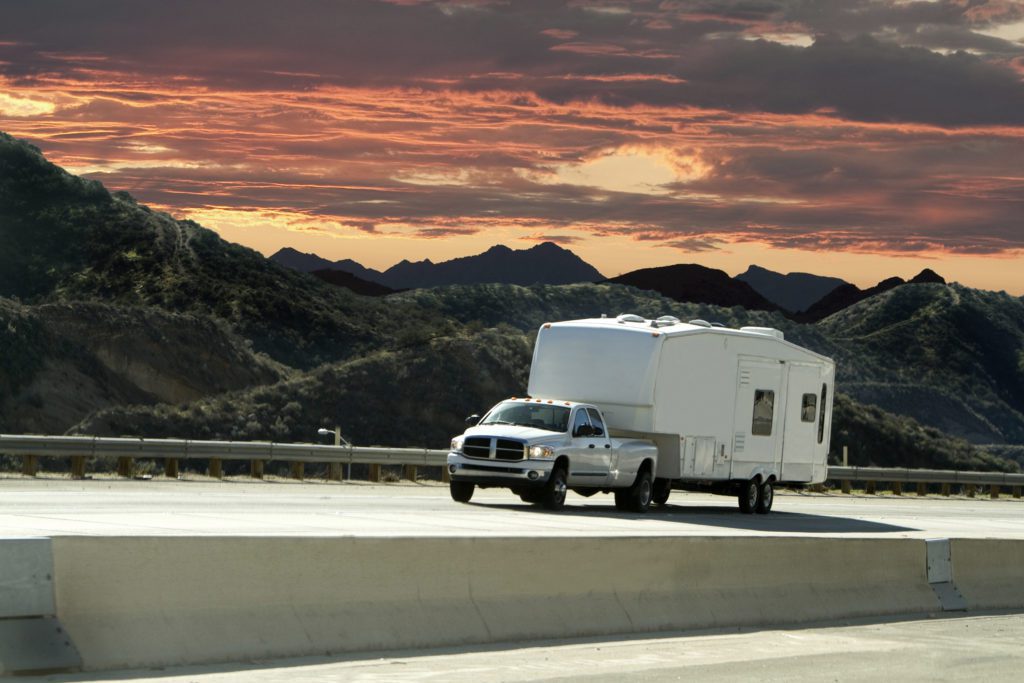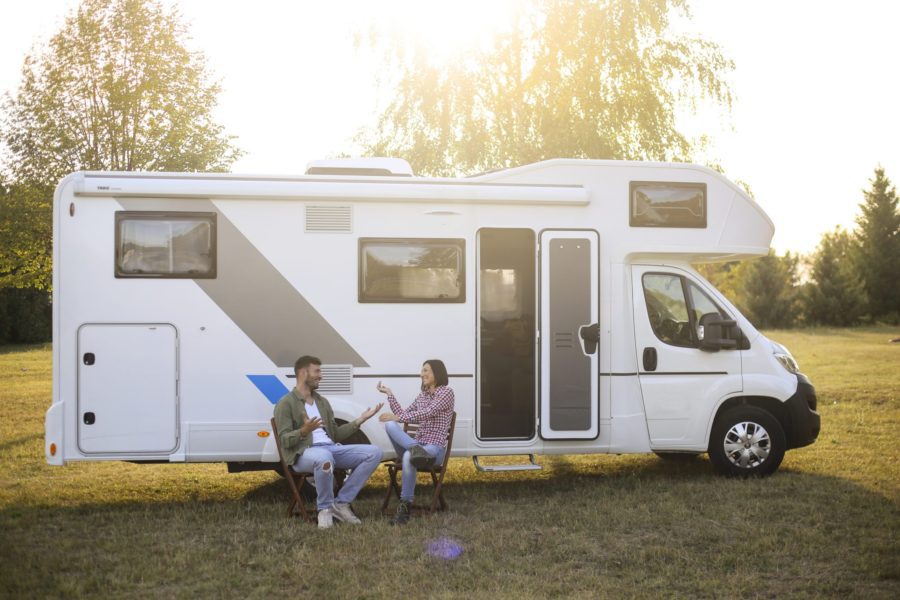If you like to travel and prefer road trips to airplanes, a recreational vehicle might be just what you need. According to Go RVing, 11.2 million households owned an RV in 2021, an increase of 62 percent since 2001. If you’re one of these 11.2 million RV owners, make sure you have the right RV insurance.
Different Types of RVs
Different types of RVs require different types of insurance. Here are the two main categories:
- Trailers are RVs designed to be towed by vehicles. If you want to use your trailer to travel, you’ll need to attach it to a vehicle that’s capable of towing it. The term “camper” is sometimes used.
- Motorhomes are self-propelled RVs. A motorhome is both a vehicle and a home in one. There are different styles and sizes of motorhomes, and they are typically separated into Class A (the biggest), Class B and Class C.
Motorhome Insurance Coverage Requirement
Car insurance is required under state law, and these car insurance requirements apply to motorhomes. Depending on the laws in your state, you may be required to maintain the following coverage types for your RV:
- Liability Insurance: States typically require drivers to maintain liability insurance in case they cause a crash. This includes bodily injury liability for injuries caused to other people and property damage liability for damage to other people’s property. Note that liability insurance only covers injury and damage to other people. It does not cover damage to your own vehicle or RV, and it does not cover injuries to yourself or your passengers.
- Personal Injury Protection: This insurance covers costs related to injuries, including medical expenses and lost wages, regardless of fault. It is required in some states.
- Uninsured/Underinsured Motorist Coverage: If you are hit by another driver, that driver’s insurance should cover damage to your RV. But what happens if the other driver doesn’t have insurance? Or if the other driver has low limits that don’t cover the full cost of repairing or replacing your expensive RV? Uninsured/underinsured motorist coverage provides protection. Some states require or highly recommend this coverage.
Note that none of the above insurance types cover damage to your vehicle that you cause or that happens through nobody’s fault, such as damage that’s caused by being hit by an animal, a falling tree or a tornado. If you want this type of protection, you need comprehensive and collision coverage. Although comprehensive and collision coverage is not typically required under state law, it is typically required by lenders. So if you’re financing your RV, you’ll need it. It can also be a smart investment to protect your RV.

RV Insurance Coverages for Trailers
State law may not require insurance coverage for trailers. However, this doesn’t mean you don’t need insurance coverage.
If you’ve financed your trailer with a loan, your lender will likely require coverage in case the trailer is damaged. Even if you’re not required to insure your trailer, you may want to take this precaution. Your trailer is a big investment, and a lot of things can go wrong when you’re out on the open road – or even when you’re parked – so it’s good to have protection.
Also remember that you will need to meet your state’s auto insurance requirements for any vehicles that you have. If you’re using a vehicle to tow a trailer, the state might not require you to carry liability coverage for the trailer itself, but it will require coverage for the vehicle towing it.
Additional RV Insurance Coverage Considerations
On top of meeting state and lender requirements for liability, personal injury protection, comprehensive and collision and uninsured/underinsured motorist coverage, there are some additional coverage types that you might want to consider for your RV.
Depending on your situation, here are four important RV insurance coverages to consider.
- Vacation Liability: If you use your RV for vacation purposes, this insurance provides important liability coverage. According to IRMI2, coverage applies when your RV is parked off public roads and the unit is being used for recreation. The coverage does not overlap with auto liability insurance, but it may apply in other situations, for example, if someone slips on the steps of the parked trailer and is injured.
- Full-Time Coverage: If your RV is your primary residence, you’ll need special coverage. According to IRMI3, full-timers coverage is for people who use the RV as a home at least 150 days a year, even if those days are not consecutive. Coverage includes personal liability and medical payments.
- Personal Belongings: Your RV likely has a lot of your personal belongings in it – clothes, electronics, kitchenware and everything else you need on a daily basis. Just as you’d protect the stuff in your house with homeowners insurance that includes personal belongings coverage, it can be smart to get personal belongings coverage for your RV.
- Full Replacement Cost: RVs can depreciate in value fast. According to J.D. Power4, your new RV will lose about 20 percent of its value the moment you drive it off the lot. After three years of ownership, a Class A camper will have lost about 30 percent of its original value. Towable RVs also lose their value fast. After five years of using a fifth-wheel trailer, its value can decrease by 45 percent. If your insurance only covers the actual value, you might not have nearly enough coverage to replace your RV if anything happens. Securing full replacement cost coverage provides protection against this risk.
Are you renting your RV to others? Some insurance carriers will not insure RVs rented to others. Be sure to get with a carrier that will.
Understanding Your RV Insurance Quote
Your RV insurance costs can vary depending on a number of factors:
- The Type of RV: RVs vary tremendously, so the type you have will make a big difference in your coverage and costs. This includes the make and model as well as the age and condition of the RV.
- Your Location: States have different insurance requirements, and the risks can also vary from place to place. Where you live can impact your insurance requirements and rates.
- Your Driving Record: If you need auto liability insurance for a motorhome, your personal driving history can impact your rates. People with a clean driving record typically pay less for insurance.
- How You Use Your RV: There’s going to be more risk associated with an RV that you live in full-time compared to an RV that you use once or twice a year when you go on vacation. Your use can impact your rates.
- Your Coverage Terms: Getting the bare minimum coverage required by your state and lender will cost less, but it also leaves you with less coverage. You may decide you need lower priced RV insurance, but you may also decide it’s worthwhile to pay for higher limits and additional coverage types. The deductible you chose can also impact your RV insurance rates.
If you’re interested in RV insurance, the best way to see how much you’ll pay is to get an RV insurance quote. Higginbotham can help you find RV coverage that meets your needs. Learn more.





